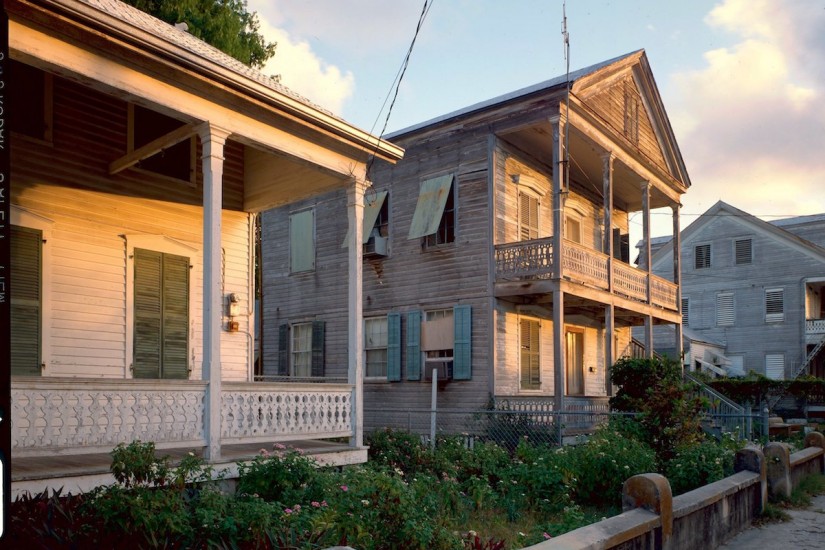Two things followed Wolkowsky to the end of the road in 1962: his sense of preservation and the inextricable ingredient that has lent Key West its ineffable charm — camp. Fortunately, both have remained extant.
When I go to Wolkowsky’s for lunch another day, we watch a film together. Before I come, he warns me to “throw the pen away.”
On a couch in his bedroom, we watch “Call Me Madam,” an Irving Berlin musical from 1953 starring Ethel Merman. Wolkowsky loves it. After one of his favorite scenes, where the young press attaché (Donald O’Connor) approaches Princess Maria (Vera Ellen) while perusing a record shop in song and dance, Wolkowsky tells me the story of how he came to know the word: “camp.”
At a party in Philadelphia while Wolkowsky was still a student, he recognized Lucien Beebe, the bicoastal polymath who had started Nevada’s first newspaper. Beebe approached, and “I just handed him my drink,” Wolkowsky tells me. Beebe laughed and replied, “You’re such a camp.” That was the first mention, the flowering, the thread of solidarity that has stuck with Wolkowsky since.
“Michael, the most important thing is camp,” he tells me. “Very few people have it.” He assures me I have it — “but not completely.”
Pausing the movie, we parse the idea of camp — pulling up websites, laying books on their spines, running through examples to ask: What is camp? Or, more specifically, how do we articulate Wolkowsky’s idea of camp?
He agrees with some denotations we find online — theatrical mannerisms, exaggerated humor, a mingling of high and low that challenges the status quo in art. Of course, as many have tried, the word, its sensibilities, and its proxies have remained elusive and difficult to pin down. But camp is as plain as day in Wolkowsky’s home, with its faux paintings that are nearly indiscernible from the real things, the levity with which he addresses all things, his coded language.
In the town, itself, camp seems essential to Key West’s sense of place. While Susan Sontag was heavily criticized for her explication of the word as a sensibility, as a style, she put it well when she wrote in 1964, “Camp is esoteric — something of a private code. To talk about camp is therefore to betray it.” In other words, depending on where and when or with whom, the word holds different meanings, evading classification for decades, maybe deliberately. And while increasingly difficult to articulate, Key West’s brand of camp reflects Wolkowsky’s understanding — never on the nose, always sideways, a place where anonymity feels like an innate right.

















